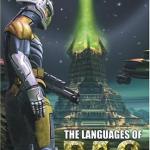Review of Ender’s Game, Directed by Gavin Hood
[This review is written for those who have read the novel or already seen the film. Find a summary of Ender’s Game here.]
“In the moment when I truly understand my enemy, understand him well enough to defeat him, then in that very moment I also love him.” – A.E. Wiggin
For decades—28 years to be exact—Orson Scott Card’s science-fiction classic Ender’s Game stumbled through Hollywood in a never-ending journey from book to screen. Card himself told people that it was impossible. Yet here we are. Lovers of the novel are naturally wary of the film adaptation and may be reading this review just to know if it’s worth watching. Is the movie destined to join a long legacy of films that have destroyed cherished memories of canon-worthy tomes?
As someone who has read not only Ender’s Game, but its sequels as well, I feel confident in assuring its bibliophilic adherents that the movie bridges the divide between paper and silver screen well enough to warrant the celebration of a successful adaptation. The opening quote to the movie, noted above, is a significant victory for those who appreciate the introspection of the novel and the moral complexity that enthroned Ender’s story among the pantheon of science-fiction novels to begin with.
Of course, everything in a book cannot be included in a movie, but the screenplay did an admirable job in making sure we understood that this was a story about children and the paradox of understanding and vulnerability. Ender’s Game is more than a film about invading aliens and humanity’s will to survive. Knowing that the novel is written as a very cerebral and internal thought-oriented story makes the fact that the underlying themes of the book made it across a pleasant surprise.
The following critiques do not undermine the fact that this is a good movie and can be appreciated by both those who have read the book and those who have not. But since those who love the book must find some avenue to tell those who haven’t read the book what they’re missing out on, here we go…
Moral complexity — The moral complexity is present, but not completely fleshed out. We see Colonel Graff (Harrison Ford) pushing Ender (Asa Butterfield) to the limit without care for his well being, while Major Gwen Anderson (Viola Davis), with a different take from the book, tries to temper his drive with a sympathetic and child psychologist perspective. The morality of using children in this war is never truly fleshed out. The manipulation of Ender to isolate him and stretch him are alluded to, but only explicitly mentioned once.
Ender’s empathy — Instead of what was meant to be a profound insight into the dynamics of empathy and vulnerability, we are treated to what could—and likely will be—paralleled to a criticism of how the United States has conducted the Global War on Terror. Ender confronts Colonel Graff after the final “simulation” and denounces both the approach to war where the ends justifies the means and the moral bankruptcy of preemptive war. This line of thinking steals the show. Ender’s moment with the Hive Queen is poignant to be sure, but lacks the same punch. Ender’s decision to find the Hive Queen a new home looks more like a plot device than the fruit of a devastating realization—he has committed genocide of a sentient race that has the same right to life as humans.
Political philosophy — What we don’t get in the film is the political debates that occur between Valentine and Peter (Ender’s siblings) under the pseudonyms Demosthenes and Locke. The political overtones of the book are left aside in the movie—something that I felt was excusable due to the nature of film as a difficult medium to convey philosophical musings.
A rushed ending — The potential for the Formics to be capable of thought is not broached until the very end, right before the final battle. This leaves the false simulation, the confrontation with Colonel Graff over “just war” arguments, and his discovery of the Hive Queen, to occur in rapid succession. These crucial lessons and themes are given very little time to develop, making them more like appendages than the true underpinnings of Ender’s Game.
In the end, Ender’s Game (the film) does an acceptable job balancing critical elements of the book with the Hollywood flare and broad brushstrokes that we have come to expect. Lovers of the book should temper their expectations, but also expect to be impressed with what they’ve come up with.
There is some speculation that this film is meant to launch a film franchise. Ender’s Game may perhaps be a lot easier to translate into a movie than its sequels, so future movies—if they are coming and take less than 28 years to develop—may be big let downs. Fortunately, Ender’s Game was not.












